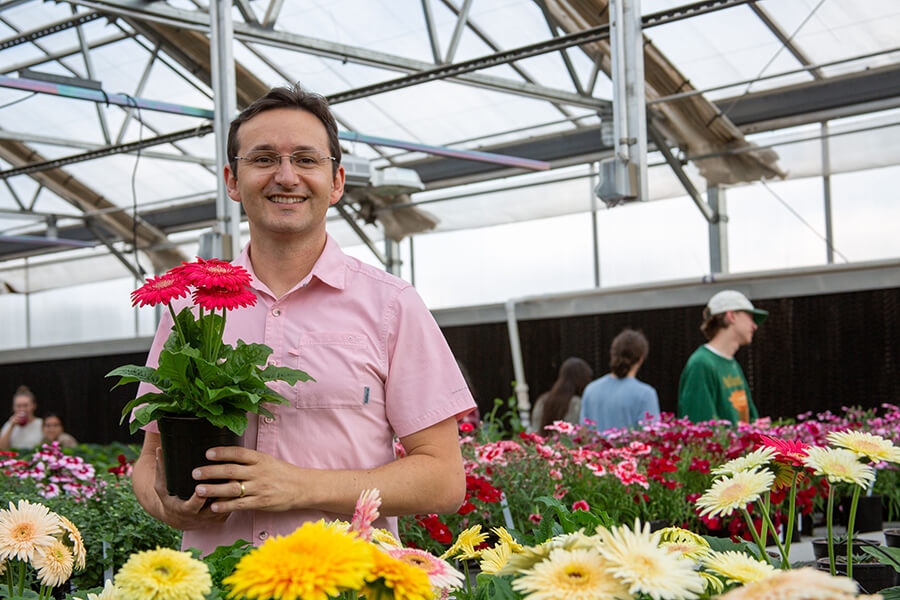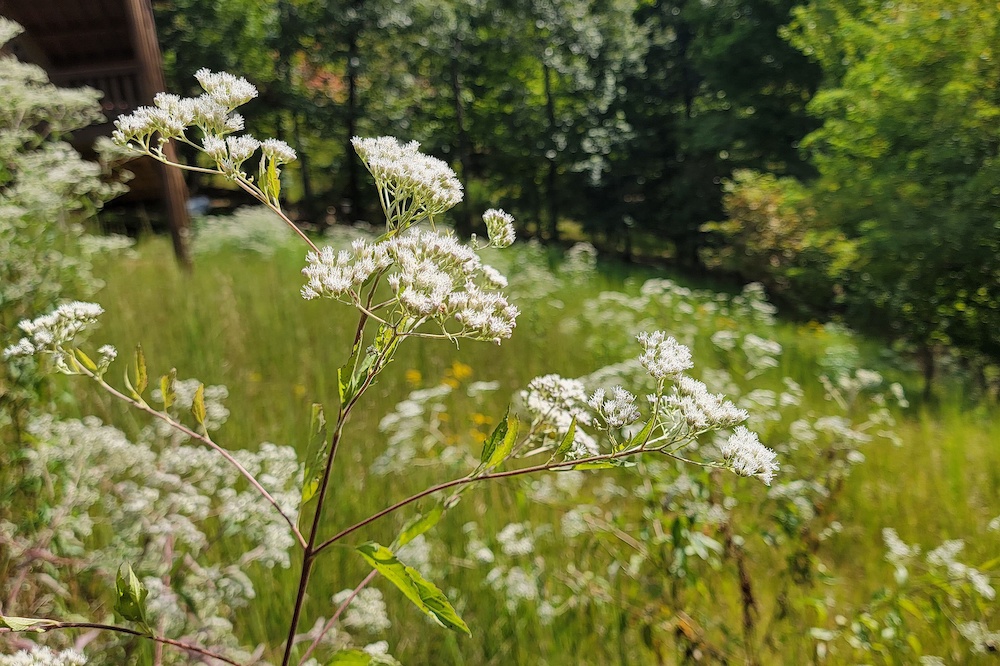Approximately 500 University of Georgia students recently walked into the two sections of professor David Berle’s introduction to horticulture course. Throughout the semester, they’ll be introduced to all things plants and learn how to serve the community they live in.
Berle is one of several professors on UGA’s Athens campus who uses service learning to teach his courses. His students don’t just scribble notes; they get their hands dirty. Through community gardening projects, they get off campus and up to their elbows in helping people.
“My students do activities as part of their learning,” Berle said. “Instead of lecturing about raised beds, we go do it. Instead of talking about fertilizers, we learn about them by using them.”
Because the classes are so large, it’s his way of making sure his students get the lab time they need without stressing already tight resources like campus space and salaried hours.
It’s also his way of giving to the Athens community. Earlier this year, the U.S. Census Bureau listed Athens-Clarke County, where UGA is located, as having the highest poverty rate in the nation for counties with more than 100,000 people.
“I’m connecting up students with a community in need,” Berle said, who works in the College of Agricultural and Environmental Sciences. “Part of my job is to expose them to a part of the world we don’t normally get to see. And we don’t ever see what the majority of Athens is, that it’s very poor.”
Berle recently joined forces with Athens Land Trust, an organization that works to empower low-income residents. Its newest project is working with different low-income groups and helping them set up community gardens throughout the poorest sections of Athens. In one year of the project, they’ve helped plan and plant 10 new gardens.
“We’re trying to bridge two missions: community gardens and low income housing,” said Gregg Bayard of Athens Land Trust Community Garden Network. “And it’s happened, thanks to David.”
In these gardens, students learn that growing plants is about both beauty and nutrition. In exchange for practical working experience, students give their hours – about 3,700 since fall of 2010.
“One of the things we’re trying to do in the college is change our focus a little,” said CAES dean and director Scott Angle. “We’ll always be good at traditional crops like cotton, peanuts and chickens, but we want to move the college forward in terms of urban ag. We see this as a need.”
The work Berle’s students do is part gardening, part building and part interning. In his classes designed specially around service learning, students experiment with different ways to build raised beds – hog fencing and soil erosion cloth to cut down on the amount of cedar they use – and soil mixtures. They deliver supplies, grow plants and participate in workdays.
The community gardens give them an edge in the job market through internships. These interns specifically work with people directly involved with each community garden to help them decide what to plant and how best to do it.
“Gardens promote a level of interconnectedness,” Bayard said. “It’s a key component we look for in social programs we try to integrate into our projects. In my mind, it’s very welcome to see this change in societal focus.”
“Students want to know how to grow,” Berle said. “They want to know how to can… And, ultimately, none of this could be possible without the input of the students.”









